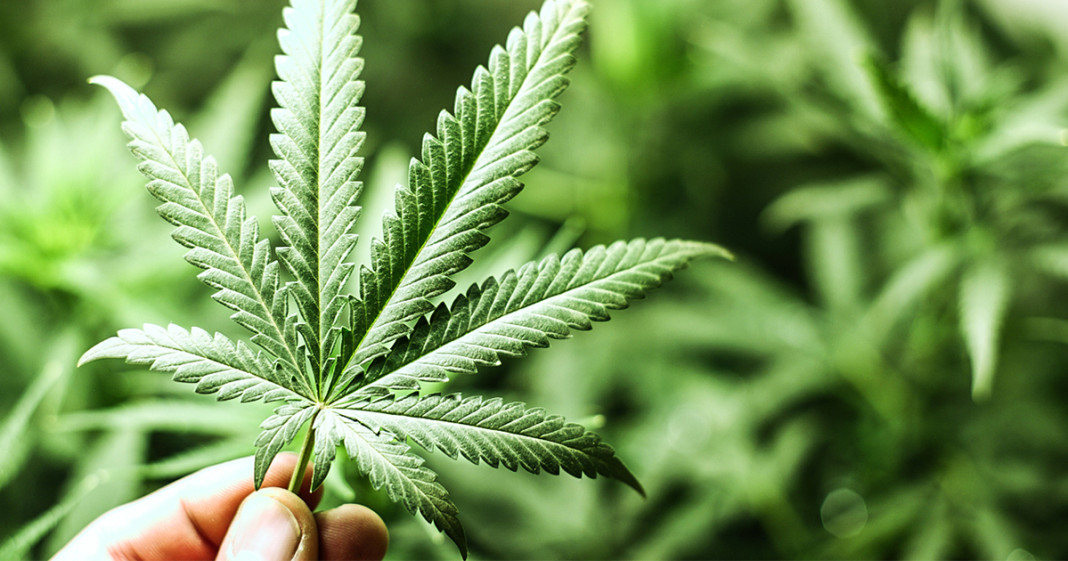There is a reason for hope in the ongoing tragedy of America’s growing opioid crisis – and that is medical marijuana. According to a study coming out in the April issue of the journal Drug and Alcohol Dependence, hospital admissions for opioid addiction and emergency room visits for opioid overdose have dropped significantly in states that have legalized the sale of medical cannabis. On the other hand, fears that marijuana users would start entering hospitals and treatment centers en masse have failed to materialize.
The study was conducted and written up by Dr. Yuyan Shi, a professor of public health at the University of California in San Diego. She said, “medical marijuana laws may have reduced hospitalizations related to opioid pain relievers,” although she cautions that her findings are “still preliminary.”
Be that as it may, Yuyan Shi’s findings confirm a number of previous studies of hospital records going back to 1997, all of which show sizable reductions in opioid-related deaths and accidents in states where medical marijuana is legal.
Earlier this year, the National Academies of Science, Engineering, and Medicine published a report titled “The Health Effects of Cannabis and Cannabinoids,” outlining “conclusive or substantial evidence” of the effectiveness of cannabis in treating chronic pain as well as nausea in chemotherapy patients and those suffering from symptoms of multiple sclerosis.
The study also confirmed a well-known fact that unlike Opioids, alcohol, and other stimulants, no one has ever overdosed or died from the inhalation or consumption of cannabis.
A few years ago, Dr. Marcus A. Bachhuber was the lead author of a study on medical cannabis laws and their effects on opioid deaths across the U.S. between 1999 and 2010. That study, published in the October 2014 issue of the Journal of the American Medical Association, concluded that “Medical cannabis laws are associated with significantly lower state-level opioid overdose mortality rates” by up to 25% across the board.
Dr. Bachhuber, who conducts research into prescription drug abuse and health policy at the Montefiore Medical Center in Bronx, New York, has been treating his own patients with medical cannabis since the Empire State legalized its use last year. Many of his patients struggle with opioid addiction, or are attempting to get off of prescription pain medications.
Despite strong evidence of the benefits of medical cannabis, dinosaurs like current U.S. Attorney General Jeff Sessions continue to blather about the “dangers” of the “demon weed.” Only last week, Sessions declared that is was “astonished to hear people suggest that we can solve our heroin by legalizing marijuana so people can trade on life-wrecking dependency for another.” At the same time, the federal government continues to place strong restrictions on marijuana research while continuing to keep marijuana on the DEA’s Schedule I list.
Despite growing evidence to the contrary, federal law declares that cannabis has “no medical value.” This means that legally, doctors can only recommend marijuana for their patients – they cannot prescribe it (and of course, physicians employed by federal agencies cannot even discuss it with their patients). Additionally, medical testing on cannabis is extremely restricted and the medically-grown weed used for the limited testing that is allowed looks more like lawn clippings rather than the sort of weed any enthusiast would be familiar with.
While medical marijuana’s naysayers claim their concern is over “public safety,” the real agenda is to protect corporate profits. For example, revelations came out last week about a major pharmaceutical company that financed opposition to a marijuana legalization in Arizona. It turns out that Insys Therapeutics recently won approval for its own synthetic cannabis product (and incidentally, is under investigation for illegally marketing opioids).
Big Pharma is only one sector fighting to keep cannabis outlawed; other industries fighting to preserve their profits and maintain job security are producers of alcoholic beverages, law enforcement agencies and (no surprise, here) the private prison industry. In fact, the infamous Corrections Corporation of America has virtually acknowledged that the “War On Drugs” is central to their business model.
The question now is: in light of increasing evidence of the benefits of cannabis and as well as the harmlessness of moderate recreational use, will the anti-marijuana forces be able to put that proverbial genie back in its bottle?




![Senator Schumer: “Single Payer [Health Care] is On The Table”](https://sandbox.trofire.com/wp-content/uploads/2017/07/Universal-Healthcare-218x150.jpg)